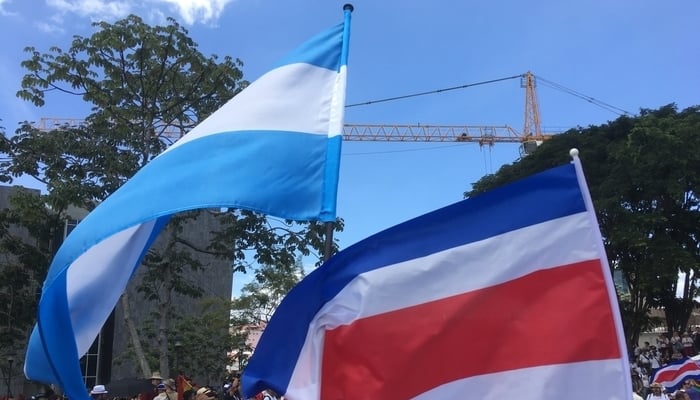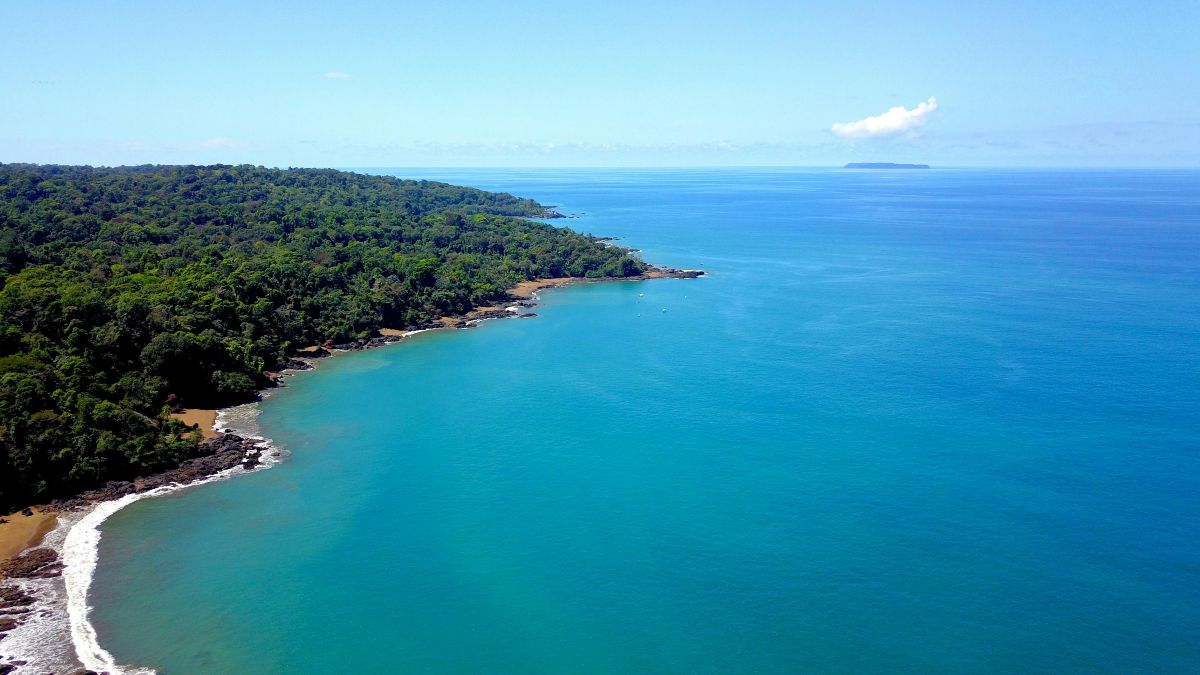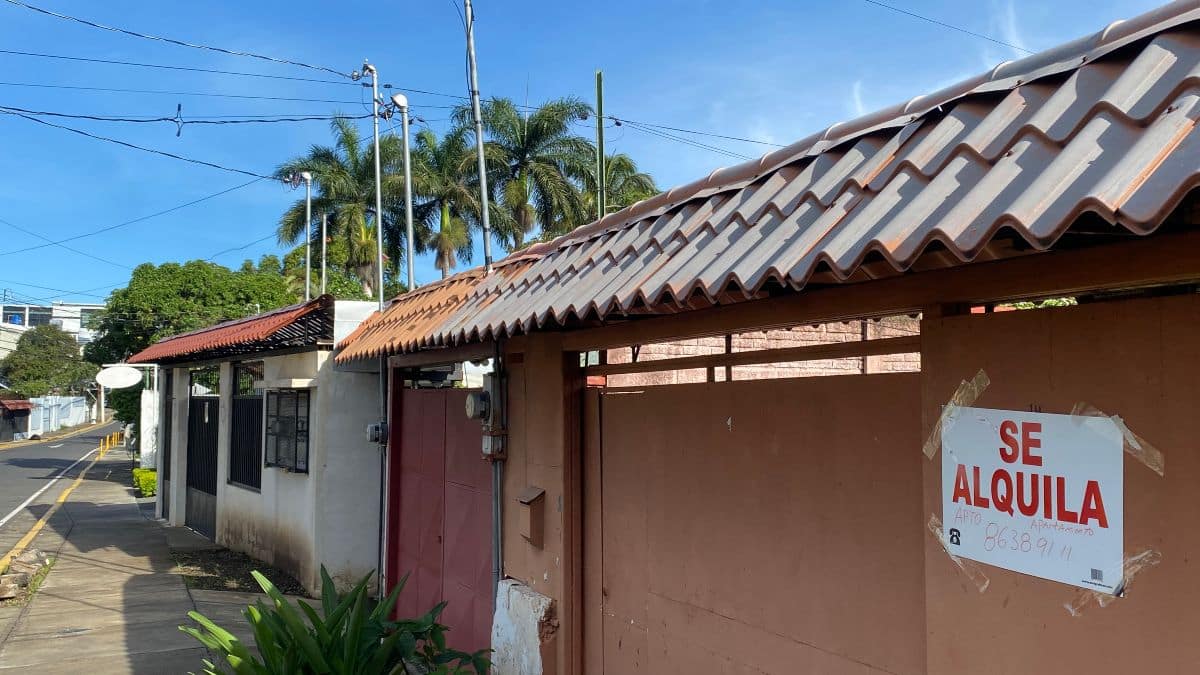One of the biggest talking points about the COVID-19 crisis in Costa Rica has been Nicaragua. As case numbers rise, so does anti-immigration sentiment towards Nicaraguans in Costa Rica.
There are valid reasons why Nicaraguans come to Costa Rica. It’s not only poverty and (now) COVID-19, it’s also the dictatorship. Sometimes we need reminding the Ortega/Murillo dictatorship is still here, and is as bad as ever.
Last weekend, I wrote about the Costa Rica Public Security Minister calling for a ban on alcohol sales. At the same time, a real journalist in Managua wrote about Kevin Zamora, a 19-year-old student-turned-political prisoner. The contrast only struck me today.
Kevin has been in custody in Nicaragua since September 2019. The government arrested him in possession of muriatic acid, a common household product in Nicaragua. Since then they’ve tortured and beaten him so badly, he’s now deaf in one ear.
Marta Vargas, Kevin’s mother, spoke about the pain of seeing her son in prison.
“It hurts me to see him in that place. He’s well educated, not spoiled. He was studying a technical degree in English and they grabbed him from class. They took him, tortured him, they beat him. They broke his ear because they hit him so hard,” she told 100% Noticias.
Last month, After nine months of detention, a Sandinista judge gave Kevin six years.
#Nacionales| Kevin Zamora Delgado, el preso político quedó sordo de un oído por las torturas en el Chipotehttps://t.co/NxEiTP46E9
— 100%NOTICIAS (@100noticiasni) July 12, 2020
On July 6, two more political prisoners, Victor Soza and Maria Sanchez were each given ten-year sentences in Ortega’s jails.
This is almost the maximum sentence under Ortega’s sweeping “anti-terrorism” laws implemented after the 2018 crackdown. Soza, according to his attorney Julio Montenego, isn’t allowed to make/receive phone calls or receive the food his family brings him. (Kevin Zamora’s mother also says guards confiscate the food she brings for her son.)
Maria Sanchez has health problems and is being denied medicines and any protection against COVID-19, for which she is high-risk. Guards in her prison also try to stir up hostility towards political prisoners from the general population.
Another political prisoner, Kevin Solis, a student who survived Ortega’s brutal crackdown against universities in 2018 is serving ten years for allegedly stealing 500 cordobas (about $17) from a Sandinista supporter. Before his arrest and trial in February 2020 – a trial where his defense weren’t allowed to make their case – he’d already spent seven months in custody stemming from the protests. Like Victor Soza, he’s not allowed visitors.
I could name political prisoners and Ortega/Murillo human rights abuses in Nicaragua all day. I could talk all day about the hundreds of Nicaraguan men, women, and children the Ortega/Murillo regime murdered in 2018. Nicaragua is a police state, a true dictatorship. South of the Rio San Juan, here in Costa Rica, we don’t know how lucky we are, even with the current pandemic.
Se condenó a Presos Políticos María Esperanza Sánchez y Victor Manuel Soza a la pena de 10 años de Prisión (casi la pena maxima), y 500 dias multa. Se notificó a Fiscalia desde 2 de julio, pero la defensa aún no ha sido notificada. El juez debe acompañar sentencia al notificar. pic.twitter.com/FIPBTkfQgS
— Julio Montenegro (@JulioMonOficial) July 6, 2020
The fact is, even though the street protests have stopped, repression in Nicaragua is alive and well.
The reason they’ve stopped isn’t because the situation is better. It’s because the regime crushed them with violence. The Ortegas are still in power and they’re going nowhere. This is why more Nicaraguans have been coming to Costa Rica than usual since 2018.
They’re escaping a brutal government that kills, tortures, and imprisons its people.
It would be wonderful if more people in Costa Rica remembered this.
Clearly, the virus hasn’t helped.
It’s running rampant in Nicaragua and the regime doesn’t care. Given their record, this is no surprise. A mixture of Ortega arrogance and incompetence has made Nicaragua the basket case of Central America.
Nicaragua is a place where the regime fires doctors who speak out about what’s happening in hospitals and lies about its COVID-19 numbers. (The regime likes firing doctors – they also fired a bunch for treating wounded protesters in 2018.)
Can you blame Nicaraguans for wanting to get out?
Nicaragua: Doctors Fired for Covid-19 Comments https://t.co/4sXurLlI0V
— Human Rights Watch (@hrw) June 24, 2020
Every day I watch the daily COVID-19 press briefing in Costa Rica on Facebook.
I watch it this way, on the Casa Presidencial page, not so much for the briefings themselves, but for the comments.
The comments are heartbreaking, a litany of xenophobia and division. Every day, without fail, someone talks about “foreigners”.
About how “Nicas” are to blame for the rising COVID-19 numbers.
They talk about how it’s “only” Nicaraguans having parties and ignoring the restrictions. You see this every day.
And then there are the conspiracy theories about how Nicaraguans get free healthcare while Ticos have to pay. About how Costa Ricans have to wait behind Nicaraguans in hospitals while they get all the beds. You see this every day and people believe it. These comments get lots of likes and hearts.
Anti-Nicaraguan xenophobia has always been a problem in Costa Rica, at least in the 20 years I’ve been here. Costa Ricans blame Nicaraguans for crime and job-stealing (even though most Costa Ricans would never do the work Nicaraguans do). That’s always been the case. Now they blame them for COVID-19 as well.
With Nicaraguans seeking refuge in Costa Rica in recent years, xenophobia has risen. Now, migrants are blamed for the spread of Covid-19.
By María Jesús Morahttps://t.co/qUkFizJZFG
— NACLA Report (@NACLA) July 14, 2020
The Nicaraguan regime’s handling of the pandemic hasn’t helped, it’s true.
COVID-19 spread through Nicaragua as the government held “marches of peace and love against coronavirus” and denied the existence of the virus. It was always inevitable that this would spill over into Costa Rica. Especially as Costa Rica relies on Nicaraguan labor for its agricultural industry. I mean, how many Ticos are prepared to go and pick pineapples for a living?
But none of this is the fault of regular Nicaraguans. They don’t deserve to be pilloried and scapegoated by a more privileged society for something that isn’t their fault.
Despite times being hard right now, perhaps the hardest they’ve been since the 80s fiscal crisis, Costa Rica is still a lucky country. It’s still a good place to live, where people don’t have to fear their government and flee abroad to avoid state torture and persecution. I might disagree fundamentally with how Costa Rica manages COVID, but I know I won’t be picked up by armed, hooded men in a Toyota Hilux and taken to prison for it.
As the crisis in Nicaragua escalates and the world looks away, Daniel Ortega conforms to the archetypical dictator stereotype of denial, just like Somoza, Ceaușescu, Gadaffi, and tyrants before him.https://t.co/F5O6jtWSxF#Nicaragua #SOSNicaragua
— CentralAmericaLiving (@VidaAmerica) July 12, 2018
We’re lucky that, even in the midst of this pandemic, a minister talking about banning beer makes the news in Costa Rica.
Like banning beer is worst thing that could happen. Compare that to a 19-year-old boy’s torture at the hands of his government while the food his mom brings gets stolen by his guards.
It amazes me how the social programs (schools, hospitals, etc) and abolishment of the army that Costa Rica is justifiably proud of, somehow make it less tolerant and more dismissive of its neighbors. Pura vida shouldn’t dissipate at Peñas Blancas or Paso Canoas.
Instead of calling out, blaming, and scapegoating Nicaraguans in Costa Rica, how about a little compassion? Then we’ll truly be pura vida again.
James Dyde is the editor of www.centralamerica.com. He lives in Escazu, Costa Rica.




